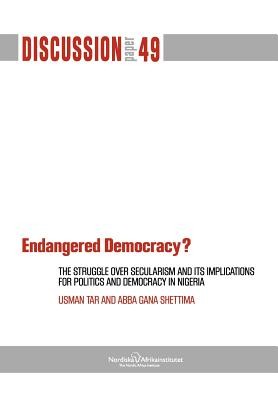
- We will send in 10–14 business days.
- Author: Usman Tar
- Publisher: Nordic Africa Institute
- Year: 2012
- Pages: 24
- ISBN-10: 9171066667
- ISBN-13: 9789171066664
- Format: 17 x 24.4 x 0.1 cm, minkšti viršeliai
- Language: English
- SAVE -10% with code: EXTRA
Endangered Democracy? the Struggle Over Secularism and Its Implications for Politics and Democracy in Nigeria (e-book) (used book) | bookbook.eu
Reviews
Description
This Discussion Paper critically examines the pivotal role religion plays in Nigerian politics, particularly as it relates to the ways Islamic and Christian identities have been manipulated by competing political elites in their struggle for power. It provides a concise but well-informed history of the evolution of the religious factor in politics and its adverse implications for Nigeria's democracy. Its point of departure is a critique of the notion of a secular Nigerian state (as prescribed by the constitution), which shows how governments and politicians have taken advantage of constitutional loopholes and used state resources to foster the politicisation of religion, with serious consequences for society at large. Some of the adverse consequences identified include religious conflict, political instability, insecurity and the undermining of the country's democracy and development.
- Author: Usman Tar
- Publisher: Nordic Africa Institute
- Year: 2012
- Pages: 24
- ISBN-10: 9171066667
- ISBN-13: 9789171066664
- Format: 17 x 24.4 x 0.1 cm, minkšti viršeliai
- Language: English English
This Discussion Paper critically examines the pivotal role religion plays in Nigerian politics, particularly as it relates to the ways Islamic and Christian identities have been manipulated by competing political elites in their struggle for power. It provides a concise but well-informed history of the evolution of the religious factor in politics and its adverse implications for Nigeria's democracy. Its point of departure is a critique of the notion of a secular Nigerian state (as prescribed by the constitution), which shows how governments and politicians have taken advantage of constitutional loopholes and used state resources to foster the politicisation of religion, with serious consequences for society at large. Some of the adverse consequences identified include religious conflict, political instability, insecurity and the undermining of the country's democracy and development.


Reviews